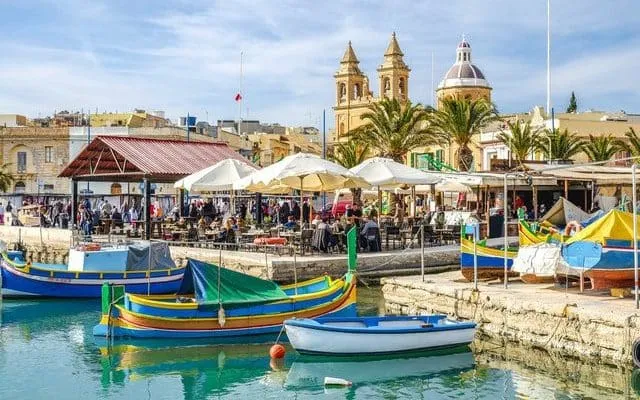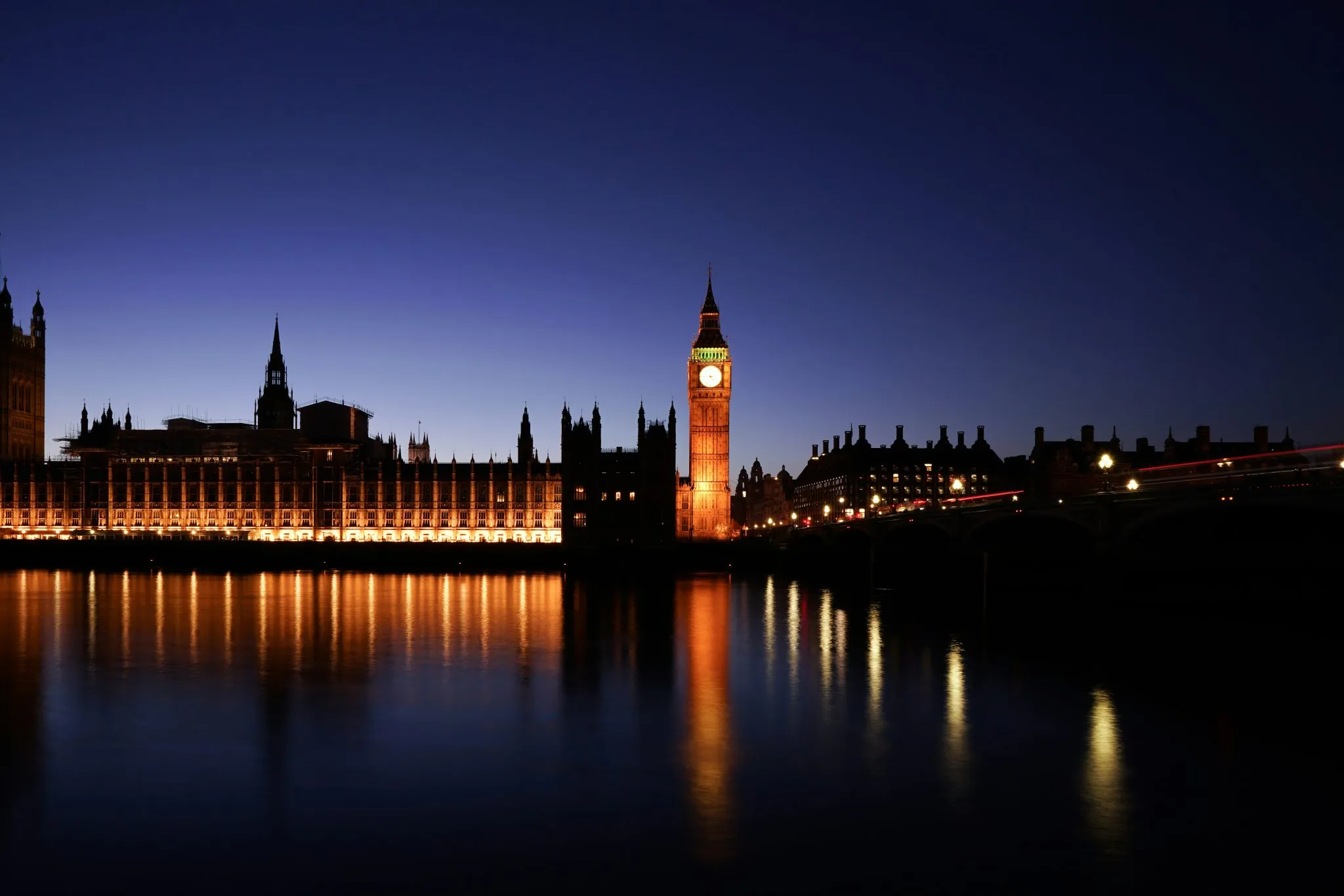Emigrate to Malta from the UK
Do you want to Emigrate to Malta from the UK? Find out more about your migration options.
Our immigration lawyers can help you to emigrate from the UK, for professional advice about moving get in touch with our team today on 0333 305 9375.
Read our 1001 reviews
British citizens moving to Malta
As a small island nation in the Mediterranean sea, Malta has a rich and varied history that has seen waves of invaders from various parts of the world. The country’s culture still bears traces of its past inhabitants, most notably the Romans, Moors and British, and its recent history as a part of the British Empire.
The island’s unique history and status as an EU member state make it attractive to prospective ex-pats from other European countries such as Britain. As a result, Malta has become increasingly popular with British citizens who wish to emigrate.
Brexit has made moving to Malta more complex, as British citizens will now need to obtain a visa and residence document to live in Malta on a long term basis. British expats who were living in Malta prior to the end of free movement will still obtain their residence status due to the protections afforded to them under the withdrawal agreement.
Despite Brexit, Moving from the UK to Malta can still be an easy process for residents of the United Kingdom due to the two countries’ common history, language and cultural ties. Here are some of the reasons to make a move:
Malta Is a Safe, Stable Country with a Healthy Economy and Expat Community
The crime rate in Malta is low and falling, and while it isn’t completely free from terrorism, it doesn’t have any history of terrorist attacks – unlike many other parts of Europe. The economy is strong and growing, and there is a well-established ex-pat community in Malta, so there’s no shortage of people to meet when you first arrive.
Malta’s Healthcare System and Facilities are among the Best in Europe
If you move from the UK to Malta, you’ll be happy to know that the Maltese healthcare system is among the best in Europe. And if you need to see a doctor or specialist, public healthcare facilities tend to have short wait times.
Many Maltese citizens also choose to opt for private healthcare and the cost of insurance is much lower than countries in other parts of the world.
It’s Easy to Travel to and From Malta
Visiting friends and family is a breeze when you immigrate to Malta from the UK. London has direct flights to Malta, which takes a mere three hours. So, if you’re feeling homesick, you can be back in the UK within a day.
Property Prices in Malta Have Remained Affordable
In many cases, purchasing property in Malta from overseas is much more affordable than buying property in the UK due to Brexit. However, prices are rising as more people choose to buy property on the island. If you’re looking for an affordable property, now is the time to make a move!
Visa-free entry for UK Nationals
UK citizens do not need a visa to enter Malta. Instead, they may stay in Malta for up to 3 months without a visa to show that they can support themselves financially during their trip.
EU nationals do not require a visa to live, work or study in Malta. However, non-eu nationals are required to obtain a visa to carry out these activities.

Malta Visas for Long Term Stay
If you want to stay longer than three months, you must apply for a residence permit through Identity Malta. If your application is approved, you’ll get an e-residence card – a document that looks like a credit card and includes your photo, fingerprints and personal information. The e-residence card is valid for five years.
If you want to work in Malta, you’ll need to apply for a Type D visa. Once you have this visa, you can apply for a permit that allows employment in your chosen profession and will be granted at the discretion of the Maltese authorities.
To qualify for permanent residence in Malta, you must first have lived in the country temporarily for five years. Applicants must provide proof of income from legitimate sources during that period and meet other requirements.
Malta also offers visas specifically to those engaged or married to citizens of the country or EU member states; these visas allow applicants to look for work while they’re there.
Permanent Residence in Malta
Anyone living in Malta must apply for a residence permit to remain on the island for more than three months. You can do this at the Department of Citizenship and Expatriate Affairs (DCEA). You can make the application once you arrive in Malta.
You must open an account with one of two banks on the island. These are Bank of Valetta or Lombard Bank. As long as you maintain this account and continue to meet all other criteria, you can remain a resident of Malta indefinitely without having to renew your status or visa.
Other requirements for obtaining the Malta residence permit include:
- An ability to prove that funds have been generated from legitimate sources.
- A medical certificate that proves that you’re free from any contagious diseases.
- Police require a certificate from your home country and all countries where you’ve lived for more than six months over the past ten years (three years if applying as an EU citizen). You need to provide this certificate before receiving your visa.
Once you have found a job in Malta and have all of the other required documents in order, the next step is to apply for your residency permit. You can do this at the nearest Malta immigration office. When you go to apply, you’ll need to bring your passport, employment contract, criminal record certificate (if you have one), photocopies of all of your documents, and the appropriate fee.
You can find out more about the requirements for permanent residence on the Maltese government website.
The Malta Citizenship by Investment Program
The Maltese Government is offering fast track citizenship by investment program, which grants the successful applicant a European Union passport. The Malta Individual Investor Programme (MIIP) targets high net worth applicants who are not citizens of the European Union and who wish to reside in Malta as part of their family. If you are interested in applying for Maltese citizenship through this route ten you must meet the following requirements:
- Be at least 18 years old
- Have good character
- Pay an investment contribution
- Comply with residence requirements
All applicants will also need to pass several background checks, and other eligibility criteria may vary for applicants from different countries.
The Malta Global Residency Programme
The Malta Global Residency Programme (MGARP) is a scheme that allows foreigners to live and work in Malta. If you’re a UK national looking to emigrate, the MGARP is a great option for you. Under the scheme, you can obtain Maltese residency and enjoy all the benefits that come with it, including access to healthcare and education and the ability to work and travel throughout the EU.
The MGARP is open to all nationalities, but there are a few key requirements that you must meet to be eligible. You must be over 18 years of age, have a clean criminal record, and meet certain financial criteria. To learn more about the MGARP and how you can apply, visit the official government website.

Study visa in Malta for UK citizens
A few visa options are available to UK citizens who want to study in Malta. The most popular choice is the Student Visa, which allows you to study for up to three years at an accredited institution.
You will need to provide proof of your academic qualifications, proof of your ability to support yourself financially, and evidence of your health insurance. You will also need a letter of acceptance from a Maltese educational institution.
The Student Visa is valid for twelve months and can be renewed if still studying at an accredited institution.
Table of Contents
Table of Contents will appear here.Table of Contents
Table of Contents will appear here.Legal Disclaimer
The information provided is for general informational purposes only and does not constitute legal advice. While we make every effort to ensure accuracy, the law may change, and the information may not reflect the most current legal developments. No warranty is given regarding the accuracy or completeness of the information, and we do not accept liability in such cases. We recommend consulting with a qualified lawyer at Immigration Advice Service before making any decisions based on the content provided.
Services we Provide
Frequently Asked Questions
If you enter Malta as a tourist, you may stay for three months (90 days). If you are coming to Malta for business purposes, you may stay for up to 90 days within 180 days.
Yes. Your passport must be valid for the entire time you intend to spend in Malta. Your valid passport will also need at least two blank pages if you’re travelling by air and one blank page if travelling by sea. If your passport does not have enough time left on it or does not meet other requirements, you must apply for a visa through the Maltese consulate in your area before departing for Malta.
No. You’ll need some form of residence permit if you want to work in Malta during your visa-free stay. You can usually acquire this through an employer or family ties with another EU national living in Malta.
When visiting Malta, your passport must prove that you have travel insurance coverage (also known as international medical insurance) with a minimum coverage of €30,000. Even if you have the UK’s National Health Service (NHS), this will not be considered sufficient health insurance coverage.
If you spend more than half a year in Malta then you will be considered a tax resident. Malta has a double taxation agreement with the UK, which means you will not be taxed in both countries on your income but you should ask the relevant tax authority about double taxation relief. The Maltese Government will also require you to pay several other taxes including property tax, inheritance tax, and capital gains tax. It is important to factor all of these into your calculations before making a move.
















